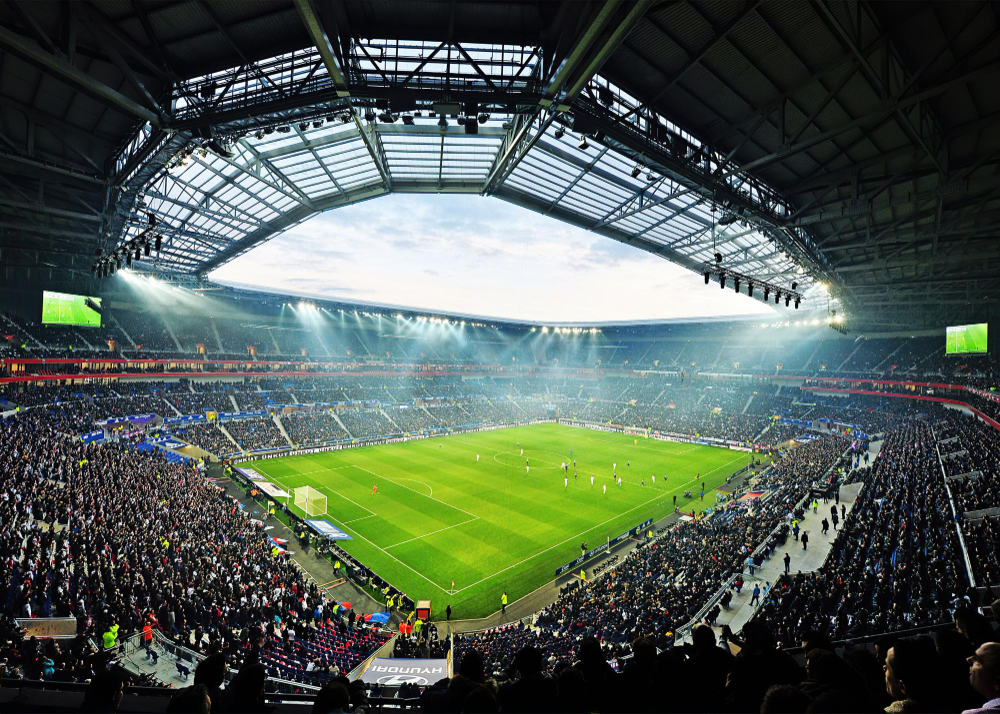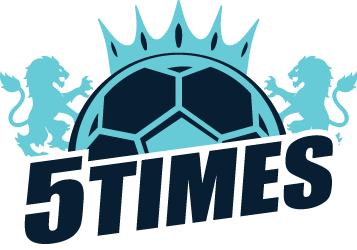
Professional sports organizations continue to represent some of the most lucrative investments on the planet. Franchise valuations have skyrocketed over the past few decades across nearly every major league, and they show no signs of slowing.
This is especially true when it comes to soccer. Clubs are routinely establishing themselves as multi-billion-dollar entities. Crossing that threshold has become even more common now that it’s legal to use the best mobile soccer apps to bet on games in the majority of the United States. General sports wagering is now approved in 39 of the 50 states, with Missouri set to become No. 40 by the end of the year. The legalization of betting is driving more interest in sports across the board, including soccer. And with that heightened interest comes higher profit margins; and with those higher profit margins comes franchise valuations.
Viewed in tandem with soccer being the most popular sport on an international level, and it’s not hard to understand why clubs are operating at all-time gains.
Yet, the billion-dollar valuations were once exclusive to organizations based outside the United States, predominantly in Europe. Now, however, these surging valuations have hit the U.S. in recent years as well.
This raises the question: What are the most powerful catalysts spearheading the meteoric spikes in club valuations?
Soccer Club Valuations Are Routinely Crossing the Billion-Dollar Threshold
According to most recent 2025 soccer franchise valuations Forbes, 20 soccer clubs are now worth at least $1 billion. That is a staggering number.
Like we mentioned before, hitting this benchmark is no longer a feat unique to international squads. Three stateside clubs are now worth at least $1 billion apiece: LA Galaxy ($1 billion), Inter Miami ($1.2 billion) and LAFC ($1.25 billion). Atlanta United, meanwhile, nearly cracks the list, with a valuation of $975 million. Given the sports’ growth trajectory, they will likely be joining the billion-dollar club soon.
What’s more, 12 franchises are now worth at least $2 billion, a record number that may only mushroom in the years to come. More specifically, Atletico de Madrid ($1.7 billion) and AC Milan ($1.5 billion) could soon join the multi-billion-dollar list in the coming years.
Staggering still, there are six clubs worth $5 billion or more. You can see the full list below, in order of descending valuations:
- Real Madrid: $6.75 billion (2 percent change year-over-year)
- Manchester United: $6.6 billion (1 percent change year-over-year)
- Barcelona: $5.65 billion (1 percent change year over year-over-year)
- Liverpool: $5.4 billion (1 percent change year-over-year)
- Manchester City: $5.3 billion (4 percent change year-over-year)
- Bayern Munich: $5.1 billion (2 percent change year-over-year)
That there is such steady growth at the top of the ranks, even only by a few percentage points compared to 2024, is actually kind of incredible.
Here’s Why Soccer Club Valuations and Revenue are on the Rise
Part of these valuations come back to how much revenue is generated by each organization. Not surprisingly, those profit margins are on the up-and-up themselves. In fact, we have now seen the first soccer club to cross $1 billion in annual revenue. As the folks over at Forbes write:
“During the 2023-24 season, Los Blancos posted $1.13 billion in revenue, becoming the first soccer team to hit the ten-figure threshold in a single year. In fact, only one other team in any sport has crossed the $1 billion revenue barrier: the NFL’s Dallas Cowboys, who first did so in 2021 and subsequently climbed to $1.2 billion in 2023, according to Forbes estimates. Manchester City of England’s Premier League, with $901 million in revenue in 2023-24, is the closest any other soccer team has come.”
As we mentioned sports, the legalization of sports betting in the United States has helped significantly bump up revenue margins. Partnerships with top online sports betting sites can be quite lucrative for organizations. And while these deals have long been available to teams outside the United States, the added business online sportsbooks get from U.S. residents increases the overall value of these agreements.
Remember, not all partnerships are flat-rate agreements. Teams may get a certain amount for advertising and branding opportunities on jerseys and stadiums, but they can also receive a percentage of overall profits, which can encompass business from all over the world.
The United States’ general market is relatively new to that calculation. Sports betting in the USA was only able to be legalized after the Supreme Court of the United States overturned the Professional and Amateur Sports Protection Act back in 2018. Since then, business has been booming.
For the 2024 calendar year, sportsbooks reported making $13.71 billion in revenue off the United States, according to ESPN. That is up from $11.04 billion in 2023—the equivalent of a nearly 25 percent jump.
Soccer Franchises are Diversifying their Business Portfolios
Beyond the sports betting element, the people and businesses behind soccer clubs have more extensive portfolios than ever. This is true across all professional sports.
When you own a franchise, you no longer control just the name and roster. You are also getting into the real estate business, as well as the tech sector. Teams have their hands in so many different things, on top of branding deals, that the appeal of owning one has never been higher.
This is why you see so many sports franchises (soccer clubs included) controlled by entire companies and even hedge funds rather than individuals. The days of family-operated organization are largely over. Recent trends in the United States are proving this first hand. Hedge funds have been behind so many of the latest sales of pro sports franchises. And when those types of businesses get involved, forget about it. There is no cap on how much a team’s value can climb.
The most recent pro-sports-franchise sale proves as much. The Los Angeles Lakers of the NBA sold at a valuation of $10 billion. This isn’t soccer, but it follows a similar pattern, right down to the transition of the sale. The Buss family owned the Lakers, and they sold to Mark Walter, the CEO and chairman of diversified holding company TWG Global, which describes itself as an American multinational conglomerate holding company.
This is all to say: If your eyes pop at the valuation of pro soccer franchises and pro sports teams in general right now, well, be prepared for more shock and awe. Because there’s a chance this is just the beginning.










